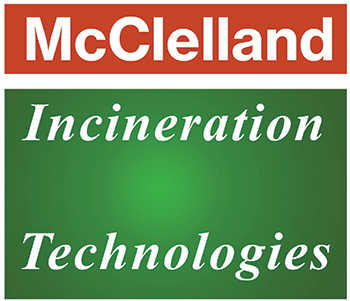 The healthcare sector, vital for public well-being, generates a complex and often hazardous array of waste. From used syringes and contaminated dressings to pathological tissues and expired pharmaceuticals, medical waste carries inherent risks of infection, injury, and environmental pollution if not managed with utmost care. Among the various disposal methods, advanced incineration stands as a proven and highly effective solution, crucial for ensuring safety, rigorous compliance, and comprehensive environmental protection in healthcare facilities globally.
The healthcare sector, vital for public well-being, generates a complex and often hazardous array of waste. From used syringes and contaminated dressings to pathological tissues and expired pharmaceuticals, medical waste carries inherent risks of infection, injury, and environmental pollution if not managed with utmost care. Among the various disposal methods, advanced incineration stands as a proven and highly effective solution, crucial for ensuring safety, rigorous compliance, and comprehensive environmental protection in healthcare facilities globally.
The Critical Nature of Medical Waste
Medical waste, also known as biomedical waste, encompasses any waste that contains infectious material or is potentially infectious. This includes sharps (needles, scalpels), pathological waste (human and animal tissues, organs), microbiological waste (laboratory cultures), discarded medicines (including cytotoxic drugs), and general waste contaminated with blood or body fluids. Improper handling and disposal of such waste can lead to serious health hazards, including the spread of diseases, chemical exposure, and environmental contamination through soil and water pollution. This necessitates a disposal method that guarantees complete sterilization and permanent destruction of hazardous components.
Why Incineration Remains a Vital Solution
High-temperature incineration offers a definitive solution for the safe and complete disposal of most categories of medical waste. The intense heat within the incinerator’s combustion chamber, typically maintained at temperatures well above 850°C and often exceeding 1000°C in the secondary chamber, achieves:
Total Pathogen Inactivation: All bacteria, viruses, spores, and other infectious agents, including highly resistant prions, are destroyed.
Volume and Mass Reduction: Waste volume is drastically reduced by up to 90%, and mass by up to 75%, significantly cutting down landfill dependence.
Chemical Neutralization: Complex organic compounds found in pharmaceutical waste and other chemicals are broken down into simpler, less harmful substances.
Sharps Sterilization: Incineration effectively destroys sharps, eliminating the risk of needle-stick injuries.
Ensuring Uncompromising Safety and Compliance
Safety is paramount in medical waste incineration, encompassing both operational safety and environmental safety. Modern incinerator systems are designed with features that prioritize both:
Secure Waste Handling: Automated loading systems minimize direct human contact with hazardous waste.
Controlled Combustion: Dual-chamber designs and precise temperature controls ensure complete burnout and prevent incomplete combustion products.
Robust Air Pollution Control Systems (APCS): This is the cornerstone of environmental protection. Multi-stage APCS meticulously treat flue gases to remove pollutants before discharge. These typically include:
Particulate Removal: Cyclones, venturi scrubbers, and baghouse filters capture solid particles.
Acid Gas Neutralization: Dry, semi-dry, or wet scrubbers neutralize acidic gases like HCl and SOx.
Dioxin/Furan & Heavy Metal Control: Activated carbon injection effectively adsorbs these highly toxic compounds, which are then captured by filters.
NOx Reduction: Technologies like SNCR/SCR help control nitrogen oxide emissions.
Continuous Emission Monitoring Systems (CEMS): Real-time monitoring ensures strict adherence to emission limits set by regulatory bodies like the Central Pollution Control Board (CPCB) in India and international standards.
Adherence to national and international regulations, such as the Biomedical Waste Management Rules, 2016 in India, is non-negotiable. Compliance ensures that healthcare facilities operate responsibly, minimizing their environmental footprint and safeguarding public health.
Mc Clelland Engineers: Your Partner in Compliant Medical Waste Solutions
At Mc Clelland Engineers Pvt. Ltd., we have been at the forefront of designing and manufacturing high-performance thermal solutions for critical waste streams since 1985. As a leading incinerator manufacturer, our expertise includes specialized medical waste incinerators engineered for ultimate safety, stringent compliance, and unparalleled environmental protection. Our systems are built to efficiently handle diverse medical waste streams, ensuring complete pathogen destruction and minimal environmental impact. You can explore our robust and reliable incinerator solutions by visiting our official website, https://mcclellandindia.com/.
With over 300 successful installations globally, Mc Clelland Engineers brings decades of experience to the complex field of medical waste management. Our manufacturing capabilities and product range feature advanced combustion technology and integrated air pollution control systems designed to meet the most demanding regulatory requirements and provide healthcare facilities with peace of mind. Discover more about how our solutions contribute to safer healthcare environments at https://incineratormanufacturer.com/.
A Commitment to Health and the Environment
For healthcare providers, the responsible management of medical waste is as crucial as patient care itself. By embracing advanced incineration technology, hospitals, clinics, and other healthcare entities can ensure the safe, compliant, and environmentally sound disposal of hazardous materials, upholding their commitment to public health and a cleaner planet.

